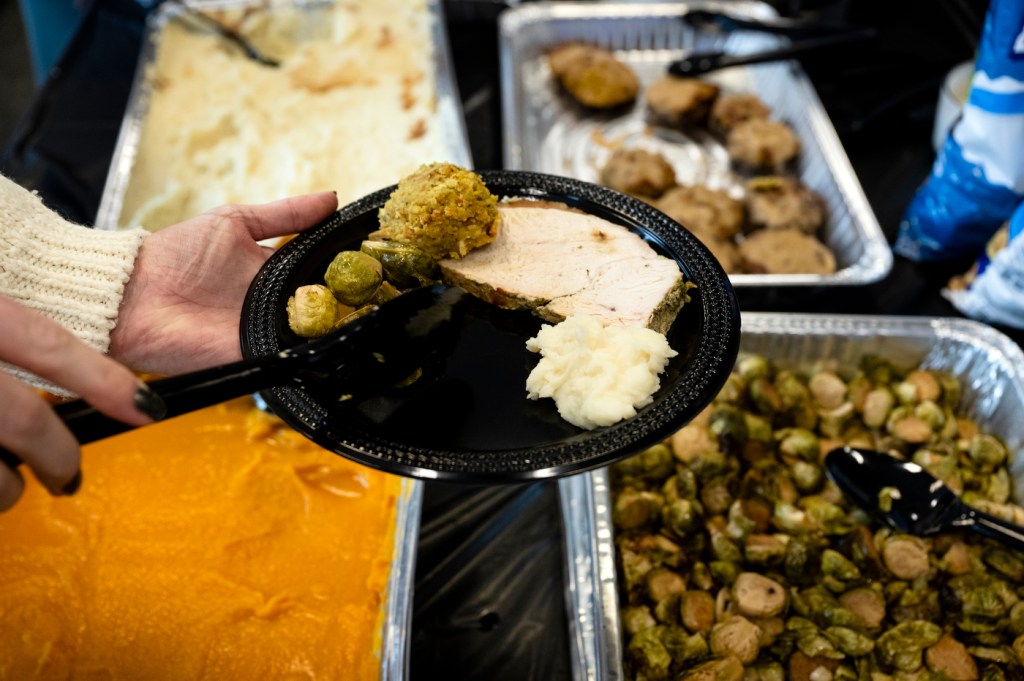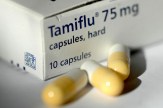How to avoid getting food poisoning over the holidays
Holidays mean gathering around a meal. That also means you could be getting the gift of foodborne illness, Northeastern expert Darin Detwiler says

It’s that time of year when friends and family tend to gather, usually around a good meal with homemade dishes.
But there’s a couple questions you might want to ask yourself and boxes you may want to check off before digging in, lest you end up a few days later in the bathroom (or emergency room) with a bad bout of foodborne illness.
The holiday season can be a great time for coming together, but sharing meals can pose a risk, said Northeastern food safety expert Darin Detwiler, namely when it comes to food not being properly cooked, stored or consumed in a timely manner.
Food preparation
Good food safety often begins before the meal is even made, Detwiler said, starting with using insulated bags while grocery shopping to ensure items stay the right temperature and checking the expiration date and packaging on your food.
Special care should go into preparing any meat as well.
“One of the things I see all the time is thawing,” he said. “People don’t really think about it, though to me, it’s crazy when someone buys a huge frozen turkey the night before Thanksgiving. There’s no humanly possible way you’re going to thaw that out in time. It’s got to be a consideration.”
If you’re the lucky one bringing the bird (or other meat), Detwiler said to budget 24 hours of thaw time for every four to five ounces of meat. So a 20-pound turkey will take four to five days to thaw.
Thawing should also be done in the fridge with the meat placed away from other products so any juice dripping off it doesn’t get on other food. It should not be done on the counter (makes the thaw inconsistent, Detwiler said) and not washed ahead of time.
“This is one of the most controversial things,” he said. “You should never, ever do that. It’s not going to actually clean the bird. Only proper cooking will do that. If there’s pathogens on the turkey, it just spreads (them) around the kitchen.”
When it comes to actually cooking, Detwiler said to make sure to cook the thickest part of the meat to the proper temperature.
Foodborne illness isn’t the only concern: Detwiler said to consider guests with allergies when preparing food and noting and labeling foods with allergens.
“We often think … we know our friends and family well,” Detwiler said. “But the reality is a lot of people don’t talk about their food allergens and how severe they are. If you’re going to be hosting a gathering, ask the people you invite (if they) have any food allergies.”
Food storage
This is not just limited to storing food in the fridge after a meal, but during the meal itself.
“I know it looks beautiful to have everything out in big bowls,” Detwiler said. “But in reality, it’s better to have smaller amounts out and then refill those if needed.”
This is to avoid keeping food out for longer than two hours; leaving it out for longer can increase the risk for foodborne illness. Hot foods need to be kept above 140 degrees and cold foods below 40 degrees as the temperatures in between are “the danger zone” where pathogens and bacteria can grow and thrive, Detwiler said.
“When you have things including eggs, cheeses and creams that have been sitting out for too long, that (worries) me,” he added.
To avoid this, Detwiler recommends only putting out the food you need and keeping everything else in the fridge or the oven.
And while it is tempting to rely on leftovers for a week after a marathon cooking session, Detwiler said leftovers should ideally be eaten within four days, and only if they’ve been properly stored in the fridge and reheated to at least 165 degrees.
Detwiler also says to avoid overloading the fridge, which could cause it to fail.
Foods to avoid
Detwiler said many foods that are at high risk for carrying pathogens that cause foodborne illness — like cantaloupe, bagged salads and traditional sprouts — are traditionally not found in holiday spreads.
But there are some holiday classics to be mindful of, like stuffing cooked in a turkey. The stuffing does not cook the same as the meat and can lead to cross contamination.
Cheese boards, while equally tempting, can also be a breeding ground for germs considering how many people touch them.
“Smaller, perhaps even individual charcuterie boards are a better scenario,” Detwiler said.
Featured Posts
Additionally, Detwiler said many cheese boards are often left out past the recommended two-hour limit. Avoid cheeses that are discolored, hardened or “sweating” as those are signs they’re going bad.
The same goes for other chilled goods that are not kept on ice.
“Seeing shrimp cocktail, it’s like a welcome mat for the eyes,” Detwiler said. “But upon closer look, I tend to question certain things. How long has this been out? Is the shrimp on ice? I also think about the serving element. I would prefer to see something where people serve themselves and have their own little serving of the cocktail sauce and shrimp as opposed to a scenario where someone is serving a large container with the shrimp around it and the cocktail sauce in the middle. It just reeks of cross contamination.”
At the same time, any food can lead to illness if not properly prepared and stored.
“It’s not so much food,” Detwiler said. “For instance, I love deviled eggs. I hate it when deviled eggs have been sitting out for a long time. If it’s like the third or fourth hour and they’re still on the table, I’m going to avoid those like the plague.”












